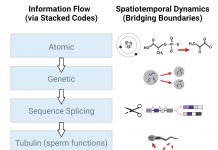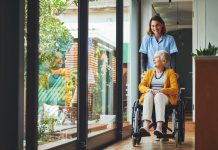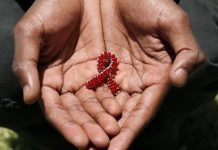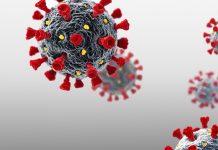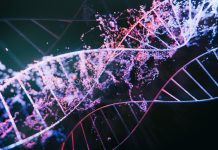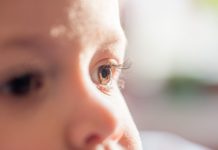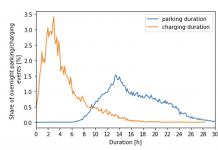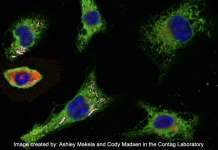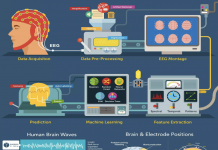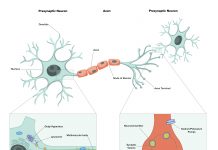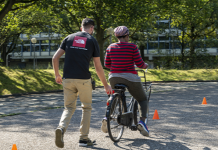Open Access Government produces compelling and informative news, publications, eBooks, and academic research articles for the public and private sector looking at health, diseases & conditions, workplace, research & innovation, digital transformation, government policy, environment, agriculture, energy, transport and more.
Home 2024
Archives
The role of stacked codes in the digital age
Chris Girard from Florida International University, sheds light on how, in the digital age, stacked genetic, computer, and quantum codes are being edited by university-trained experts.
Ageism, gerontological nursing and healthcare contexts
Professors Kathleen Hunter and Sherry Dahlke from the University of Alberta’s Faculty of Nursing explain why gerontological nursing education is key to addressing the unconscious negative stereotypes about ageing and improving care for older adults.
Collaborative governance on big health problems in developing countries
Collaborative governance research may help tackle big health problems in developing countries, says Michael P. Ryan. Here, he explains how.
LGBTQ+ scientists: UK-US inclusion in STEM
Belinda Colston1, Abigail Powell1, Lauren Esposito2 and Arti Agrawal3 discuss the challenges for LGBTQ+ scientists and inclusion in the UK-US STEM landscape through an intersectional lens.
What we need to know about urinary incontinence
Christopher Jayne, MD, FACOG, URPS, MIGS, Director from Greater Houston Urogyn, walks us through what we need to know about urinary incontinence, including comment on bladder injury research.
Who will staff the psychedelic resurgence?
Who will staff the psychedelic resurgence? Erika Dyck, Professor and Canada Research Chair in History of Health & Social Justice from the University of Saskatchewan, provides an intriguing answer to this question.
Carbon dots in forensics, environmental science, and medicine
Dr. Cecilia E. Van Cauwenberghe, from Frost & Sullivan, explains the revolutionary impact of carbon dots in forensics, environmental science, and medicine to detect, diagnose, and treat.
Leveraging exercise mimetics as potential therapeutics
Robert Wessells, Associate Professor at Wayne State University, explores whether identifying potential exercise mimetics can deliver the benefits of exercise to patients with reduced mobility.
Building global health with lego vaccines
Prof Tuck Seng Wong and Dr Kang Lan Tee from the University of Sheffield, explain building global health with LEGO vaccines.
The impact of Brexit on the UK economy
Sarah Hall, Professor of Economic Geography at the University of Nottingham, charts the impact of Brexit on the UK economy and identifies opportunities for future developments.
Meteorological data for public health surveillance
Michael Wimberly, Professor from the University of Oklahoma, walks us through integrating meteorological data for public health surveillance and disease forecasting.
Eye health: Understanding childhood myopia
Professor Nicola Logan, Professor of Optometry & Physiological Optics at Aston University, helps us to understand childhood myopia (short-sightedness), stating that early management in this vein is crucial for eye health.
Vaccine non-responders and severe adverse events
Eyer Klaus, an Associate Professor at Aarhus University’s Department of Biomedicine, explores the causes, impact, and potential resolutions of vaccine non-responsiveness and severe side effects.
GPS logging of smart charging of electric vehicles
Filip Johnsson, Maria Taljegard and Yuki Kobayashi from Chalmers University of Technology, investigate the smart charging of electric vehicles, specifically GPS logging of driving and charging patterns.
Engineered endosymbionts as novel cancer therapeutics
Satyajit Hari Kulkarni and Christopher H. Contag from the Institute for Quantitative Health Science and Engineering focus on engineered endosymbionts, which they argue is a paradigm shift in anticancer bacteriotherapy toward killing tumors from the inside out.
Bridging brain barriers for gene therapy
Reflecting on the challenges in treating brain diseases, this article explores ways to transduce the blood-brain barrier as well as the critical role of tanycytes as a target for gene therapy vectors.
AI healthcare research: Pioneering iSMART Lab
Dr Narges Armanfard, Professor, talks us through the AI healthcare research at McGill University which is spearheading a groundbreaking initiative – the iSMART Lab.
Contribution of oxidative stress to neurodegenerative disease
Paul A. Hyslop, from Arkley BioTek Indianapolis, details an ongoing specific research approach to identify, characterize, and validate physiologically relevant neuronal targets of H2O2 in designing therapeutics for neurodegenerative disease progression.
Local exposure to asylum seekers promotes a more positive attitude toward ethnic diversity
Sigrid Suetens, Professor from Tilburg University School of Economics and Management, shows that local exposure to asylum seekers promotes a more positive attitude toward ethnic diversity.
Welfare economics: Reducing animal suffering at negligible costs
Yew-Kwang Ng, Emeritus Professor from the Department of Economics, at Monash University in Australia, argues the case for reducing animal suffering at negligible costs to human beings.

